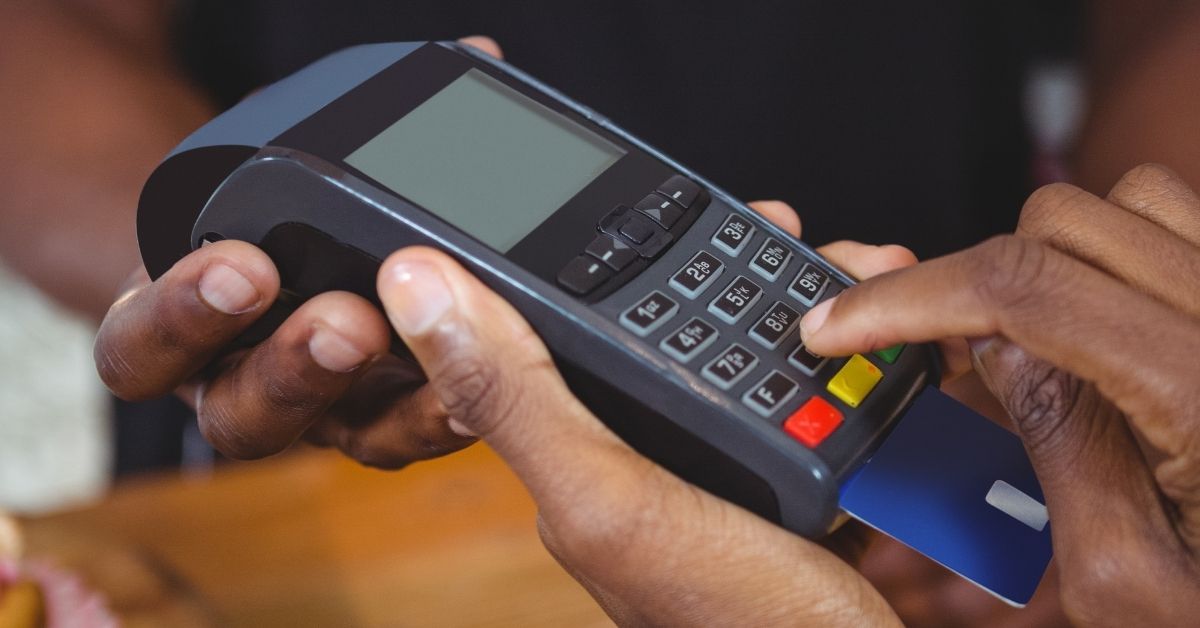Ibukun Abolarinwa, the point of service (PoS) agent in front of my house at Ojodu Berger, knows my UBA Verve card by heart. He knows that any transaction I make with my card on his MoniePoint terminal will eventually fail. Without a word, he reaches for another one from his small rainbow of PoS machines—OPay, Nomba, PalmPay, and a Wema Bank terminal—until the transaction finally goes through. It is a quiet, unspoken understanding that has kept our interactions smooth for years. That delicate dance is about to end.
A new policy by Nigeria’s Central Bank (CBN) will soon force Ibukun to pick a side. By April 2026, every PoS agent must work exclusively with one financial institution. No more juggling multiple machines to beat network issues or card incompatibilities. For customers like me who rely on this patchwork system to access cash and make transfers, it feels more like a disruption waiting to happen.
Everything changes
Under the new CBN guidelines, each PoS agent will not only have to choose one operator but also operate under tighter controls. Machines will be geo-tagged and locked to specific locations, preventing agents from moving them around freely. Daily withdrawal limits will be capped at ₦1.2 million ($816).
The policy is part of a sweeping effort to sanitise Nigeria’s fast-growing agent banking ecosystem and improve transparency. The regulator says it aims to “strengthen the enabling environment for offering safe financial services to the underbanked and remote areas.”
The logic makes sense. Nigeria’s 2 million PoS agents processed about ₦10.51 trillion ($7 billion) in transactions in the first quarter of 2025 alone, according to the Nigeria Inter-Bank Settlement System (NIBSS). In this vast and informal network, issues such as fraud, transaction disputes, and poor traceability have become significant concerns for the regulator.
However, the convenience of this informal structure has held together Nigeria’s fragile financial access story. And that’s where the tension now lies.
How agents really work
PoS agents like Ibukun have built their business models around flexibility. He tells me that MoniePoint “removes more charges than PalmPay,” so he switches between the two depending on transaction type and network reliability. On good days, he earns between ₦90,000 and ₦360,000 ($61 to $245) a month—not bad for a business that runs on small commissions and trust.
When the transaction limit for one machine is exhausted, he simply picks up another. When one network goes down, he switches to another. That convenience is how agents stay afloat in a system where network downtime is routine and cash demands can spike without warning.
The new policy hasn’t gone down well with some PoS agents. Chinyere, who operates on Lagos Island, one of Lagos’s busiest commercial hubs, said she uses multiple platforms to stay active during network failures. She fears being limited to one operator will disrupt her business, a concern shared by many others.
Obinna, a PoS agent in the Surulere area of Lagos, is skeptical about the new directive. “I don’t take CBN seriously,” he said. “Nigerian policy lasts only at the time they announce it. I don’t take it seriously.” He added that despite existing withdrawal limits, he can still process cash withdrawals of over ₦100,000 without issues.
Abdul of FEDAMS Technology, a PoS shop at Ojodu, a suburb of Lagos, said withdrawals made over the daily limit only happens when an agent is duly registered. “That one (policy) is not for us. It cannot work because of network issues,” he says in reaction to the exclusivity policy. “They want money. The government will not make a policy that will not favour them.”
Zubair Onireke, who runs his PoS business in shifts, explains how the multi-operator system enhances his business. He explains that if he eventually has to make a choice, he would choose OPay because it performs better.
What users fear
Not everyone sees this as a problem. The new rules are “bound to improve transparency in transactions,” says Oreoluwa Roheemat, a reconciliation account officer.
But others, like me, are more skeptical. “I prefer making OPay to OPay transactions,” says Omolabe Iteoluwakiishi, another regular PoS user. “If an agent only has a Moniepoint machine, I may be discouraged to follow through with the transaction because it might not go.”
It’s a practical concern, not paranoia. In many neighbourhoods, especially outside Lagos and Abuja, a single PoS agent might be the only bridge between residents and the formal financial system. The new 10-metre rule—which restricts the distance between registered PoS locations—will make it even harder to find alternatives when a transaction fails.
Counting the cost
The financial ripple effects are also hard to ignore. PoS agents operate on thin margins, often charging ₦100 or ₦200 ($0.07–$0.14) per withdrawal. Their ability to switch between operators allows them to cut costs by choosing the most reliable or affordable provider for each transaction.
That cost will likely be passed on to users. In an economy where inflation and cash shortages already bite deeply, even a small increase in withdrawal charges can alter spending behaviour.
On one hand, this new rule could push operators to offer better service, faster transactions, and well-maintained machines as banks scramble to keep their exclusive agents loyal. However, the other side of the coin could mean new realities for users.
The most immediate change will be the loss of a backup plan when one operator’s network error message becomes the final verdict for an urgent transaction. This new reality creates a compatibility trap.
If Ibukun is forced to choose Moniepoint exclusively, I’ll effectively be locked out of the most convenient financial access point in my area. For users in smaller towns—where card compatibility issues are common and PoS options are limited—this could be even worse. The 10-metre rule will make it harder to find alternative PoS agents, forcing customers to travel farther in search of another machine that may or may not work with their card.
What’s at stake
The CBN’s intentions are not misplaced. The PoS market has grown too fast for comfort; fraud and dispute resolution remain major pain points. There’s a clear need for accountability and order.
The messy, improvisational structure of Nigeria’s PoS system has been its greatest weakness and its greatest strength. It’s what allowed financial inclusion to leap forward even as the formal banking system lagged.
“Agency banking has two layers: one is regulated while the other is entrepreneurial in nature, which can’t be formally regulated,” said Safaradeen Fasasi, national president of the Association of Mobile Money & Bank Agents in Nigeria (AMMBAN). “The entity called agent is not owned by the financial institution. The relationship is a partnership.”
He adds, “It is time to start matching policy outcomes with policy formulation. That is when we will know that some policy journeys may not be necessary after all.”
If the new rules choke that adaptability, millions could find themselves stranded in micro-economies where their only PoS agent no longer “works with their card.”
The CBN wants a single, traceable system. However, it’s the organised chaos of these competing machines that has enabled digital payments to work for ordinary Nigerians.
When April 2026 arrives, agents like Ibukun will have to make a choice. And when he does, I’ll be standing across the counter, card in hand, hoping he chose the one that still works for me.
Mark your calendars! Moonshot by is back in Lagos on October 15–16! Meet and learn from Africa’s top founders, creatives & tech leaders for 2 days of keynotes, mixers & future-forward ideas. Get your tickets now: moonshot..com









